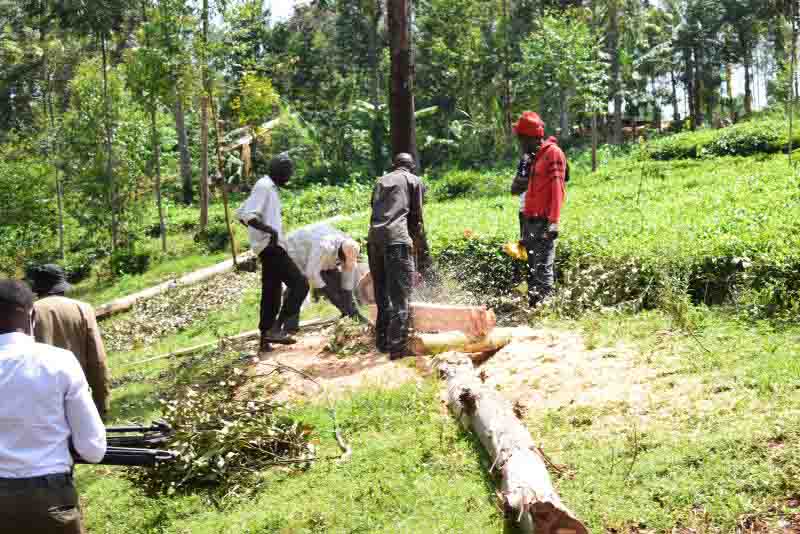×
The Standard e-Paper
Stay Informed, Even Offline

Locals cut down trees near one of the 54 indigenous forests in Kalwani village alongside Tiriki forest in Vihiga County. [Mumo Munuve, Standard]
It is a hot afternoon and four elderly men are seen walking stealthily inside Kaimosi forest. You may think they are searching for prey.